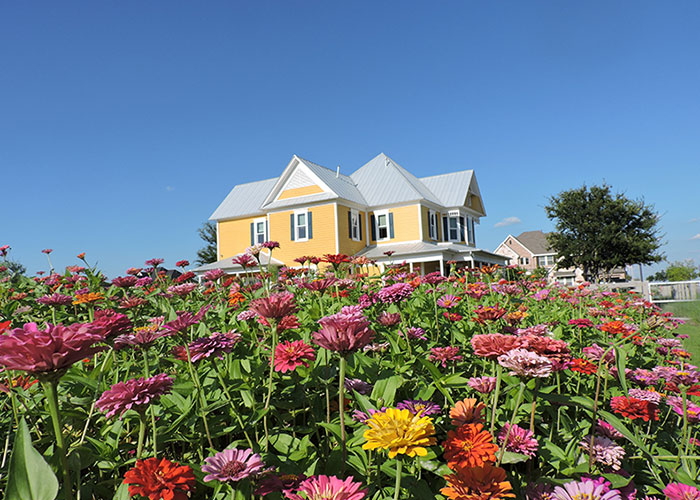
Pollination—or the transportation of pollen from one plant to another—is often done by insects, particularly bees and butterflies. Learn more about Texas pollinators and explore how to build a pollinator garden in North Texas.
According to the United States Geological Survey, about 75% of all plants in the world require pollination, including food crops. Unfortunately, many pollinating species are in decline, which is why pollination gardens have surged in popularity in recent years.
A pollinator garden is a garden where you grow plants specifically for the purpose of attracting and supporting pollinator species. In North Texas, these species include:
Pollinator gardens are largely composed of flowering plants, including plants that might not be included in traditional gardens. For instance, native milkweed is an essential way to help support certain species of butterflies, even though it might be considered a weed in a more manicured plot.
If you’ve ever wanted to get into gardening, or if you have some experience already, starting a pollination garden is actually fairly easy. These types of gardens rely heavily on native species of plants, and as a result, they tend to be more resilient than gardens consisting of nonnative plants. The end result is relatively easy maintenance.
All that said, there are still some best practices to follow if you want to get the most out of your pollinator garden.
As we’ve already mentioned, your best bet for a successful pollinator garden is to use native plants. According to Texas A&M AgriLife: Water University, some of the best pollinator plants for North Texas include:
The specific plants you choose will depend on the types of Texas pollinators you want to attract. For instance, monarch butterflies tend to be drawn to Texas Lantana, Butterflyweed, and Gregg’s Mistflower.
You’ll also want a variety of plants of different sizes. A multi-tiered look will usually do better at attracting wildlife than a uniform appearance. Plants that bloom at different times of the year are also ideal since you’ll be able to sustain more pollinators for a longer period of time.
When planting, you can opt for seeds, which cost less but need time to germinate, or bedding plants which are more expensive but yield faster results. If you opt for plants, avoid those that have been treated with pesticides since they won’t be as insect-friendly.
When starting your pollinator garden, keep these tips in mind:
In general, you want to create a space that mimics natural areas. Doing so will increase the odds that pollinators will be drawn to your garden.
While a pollinator garden may not be as high maintenance as a more manicured space, you’ll still need to do some basic maintenance. Follow these pointers for your garden:
The key idea here is that a bit of untidiness is okay since it makes your garden a better environment for pollinators. They get the materials they need to build nests, and some non-pollinator (but still essential) species even use the debris as a food source. Provide the watering and weeding your garden needs and allow pollinators to make it their home.
Before you start a pollinator garden in your yard, be sure to check your homeowner’s association rules to be sure you maintain compliance. You may need to construct your pollination garden in the back yard to comply with front yard upkeep rules.
One of the greatest challenges of planting a pollinator garden is finding the space for it. Harvest by Hillwood in Northlake/Argyle, TX is a great place to live if you want to try your hand at creating a garden of your own. You can rent your own plot, assist with the community farm, and get gardening help from Farmer Ross. For more information on Harvest’s agrihood community, contact us today.
